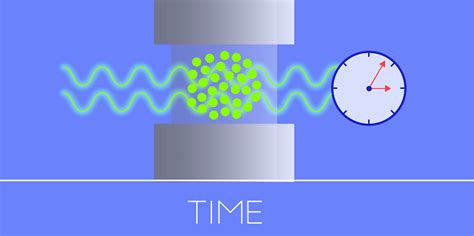Time is a fundamental concept that governs our lives, and its measurement has been a cornerstone of human civilization. From sundials to atomic clocks, the evolution of timekeeping has been marked by significant milestones. The advent of high-tech time measurement has revolutionized the way we understand and interact with time. In this article, we'll explore seven ways in which high-tech time measurement is changing everything.
1. Atomic Clocks: The New Standard for Timekeeping

Atomic clocks are the most accurate timekeeping devices in the world, with an error of only one second over tens of millions of years. These clocks use the vibrations of atoms to measure time, and their accuracy has led to a new standard for timekeeping. Atomic clocks have become the basis for modern timekeeping, enabling precise synchronization of clocks and watches around the world.
Impact on Science and Research
The accuracy of atomic clocks has had a significant impact on scientific research. For instance, the precise measurement of time has enabled scientists to study the behavior of subatomic particles and the fundamental laws of physics. Additionally, atomic clocks have improved our understanding of the Earth's rotation and the movement of celestial bodies.
2. GPS Technology: Time Measurement in Navigation

The Global Positioning System (GPS) relies heavily on accurate time measurement to provide location information. GPS satellites transmit their location and the current time, which is received by GPS receivers on the ground. The receivers use this information to calculate their own location, using the delay between the transmitted and received signals.
Impact on Navigation and Logistics
GPS technology has revolutionized navigation and logistics. With accurate time measurement, GPS enables precise location tracking, making it an essential tool for various industries, including aviation, maritime, and land transportation. The accuracy of GPS has also improved emergency services, such as search and rescue operations.
3. Time Dilation: The Relativistic Effect on Time Measurement

Time dilation is a fundamental concept in Einstein's theory of relativity, which states that time is relative and can be affected by gravity and motion. According to this theory, time passes slower near massive objects or at high speeds. This effect has been observed in various experiments, including those involving atomic clocks and GPS satellites.
Impact on Our Understanding of Time and Space
Time dilation has significantly impacted our understanding of time and space. It has led to a new perspective on the nature of time, which is no longer considered an absolute quantity. The relativistic effect on time measurement has also improved our understanding of the behavior of celestial bodies and the universe as a whole.
4. Quantum Computing: The Future of Time Measurement

Quantum computing is an emerging technology that uses the principles of quantum mechanics to perform calculations. Quantum computers have the potential to revolutionize time measurement, enabling the creation of ultra-accurate clocks and improving our understanding of the fundamental laws of physics.
Impact on Computing and Technology
Quantum computing has the potential to significantly impact various fields, including computing, cryptography, and materials science. The accurate measurement of time will play a crucial role in the development of quantum computing, enabling the creation of precise clocks and improving the efficiency of quantum algorithms.
5. Wearable Technology: Time Measurement in Everyday Life

Wearable technology, such as smartwatches and fitness trackers, has become increasingly popular in recent years. These devices incorporate time measurement, enabling users to track their daily activities, monitor their health, and receive notifications.
Impact on Health and Fitness
Wearable technology has had a significant impact on health and fitness. The accurate measurement of time has enabled users to track their progress, set goals, and receive personalized feedback. This technology has also improved the management of chronic diseases, such as diabetes and heart disease.
6. Financial Markets: Time Measurement in High-Frequency Trading

Financial markets rely heavily on accurate time measurement, particularly in high-frequency trading. The precise measurement of time enables traders to execute trades at optimal times, reducing latency and improving profitability.
Impact on Financial Markets and Trading
The accurate measurement of time has had a significant impact on financial markets and trading. High-frequency trading has become increasingly popular, and the precise measurement of time has enabled traders to execute trades at optimal times. This technology has also improved the management of risk and the detection of market anomalies.
7. Time Synchronization: The Future of Time Measurement

Time synchronization is the process of coordinating clocks to ensure that they display the same time. This technology has become increasingly important in modern society, enabling the precise measurement of time and improving the efficiency of various systems.
Impact on Modern Society and Technology
Time synchronization has had a significant impact on modern society and technology. The precise measurement of time has improved the efficiency of various systems, including power grids, transportation networks, and financial markets. This technology has also enabled the creation of precise clocks and improved the accuracy of time measurement.






As we've seen, high-tech time measurement is changing everything, from our understanding of the universe to our daily lives. The accurate measurement of time has improved various fields, including science, navigation, and finance. As technology continues to evolve, we can expect even more innovative applications of time measurement.
What are your thoughts on the impact of high-tech time measurement? Share your comments below and let's continue the conversation!
What is the most accurate clock in the world?
+The most accurate clock in the world is the atomic clock, which uses the vibrations of atoms to measure time.
How does GPS technology use time measurement?
+GPS technology uses time measurement to provide location information. GPS satellites transmit their location and the current time, which is received by GPS receivers on the ground.
What is time dilation?
+Time dilation is a relativistic effect on time measurement, which states that time passes slower near massive objects or at high speeds.
